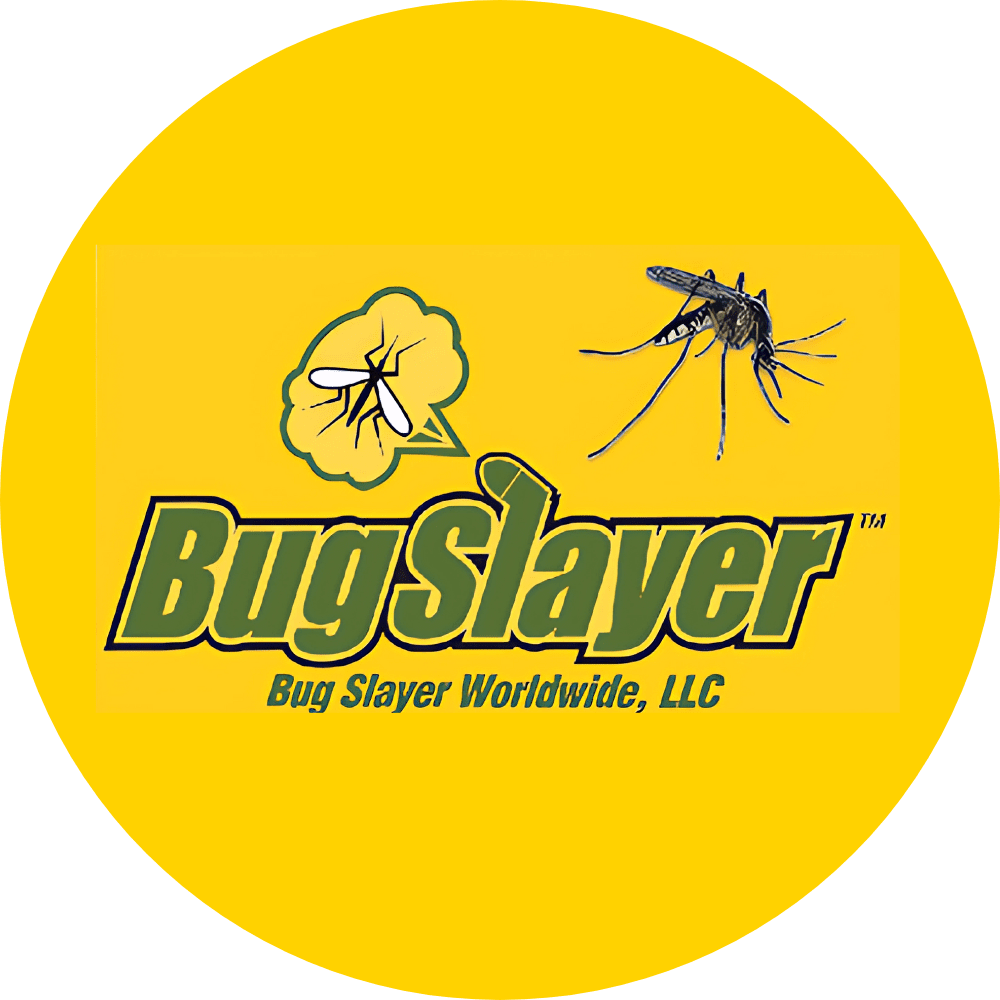Blog
Expert insights to help you reclaim your outdoor space year-round
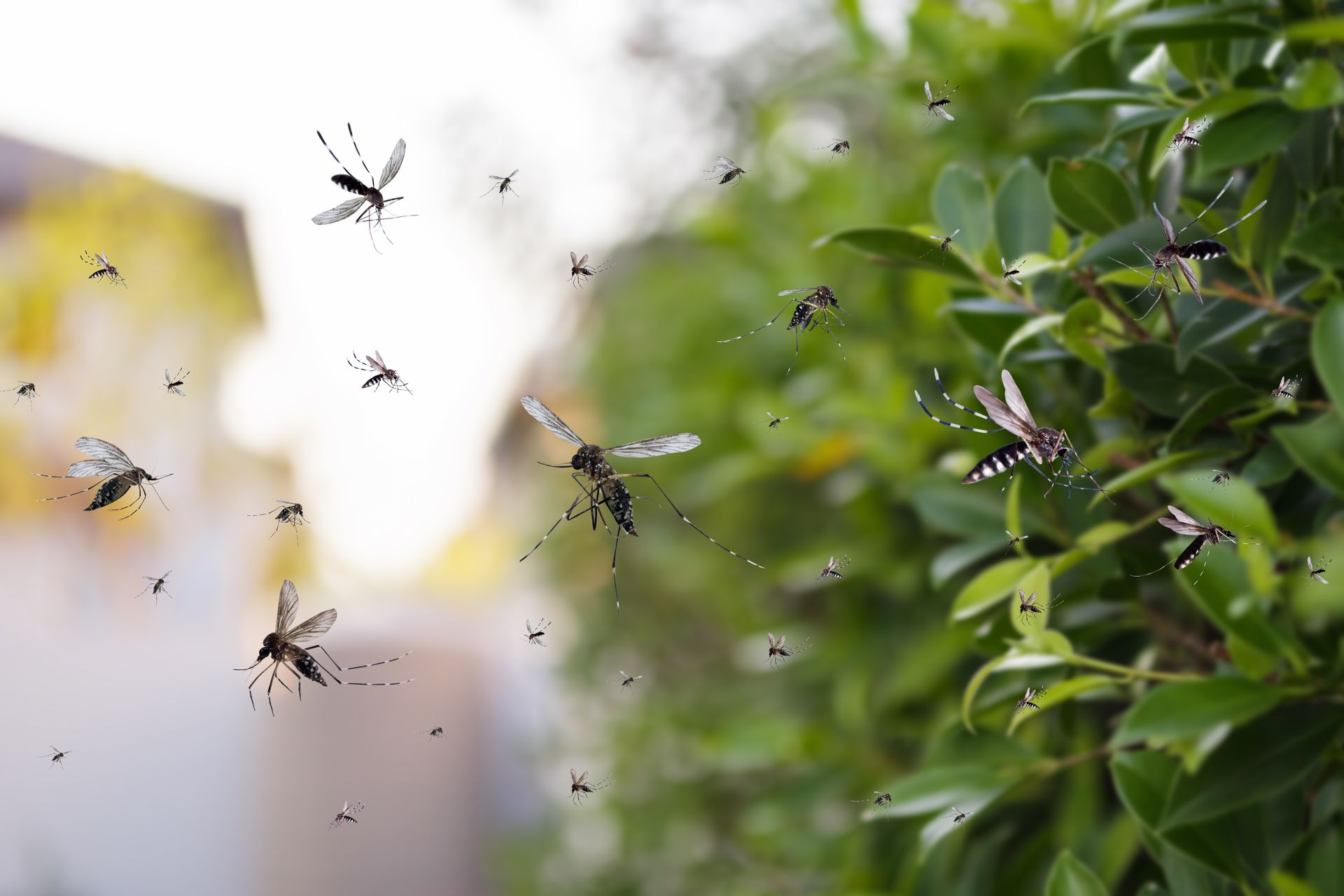
Specific needs, that may need to be addressed, may not be appropriate for use of an automatic mosquito misting system. Each property, has a specific need, with a specific intended outcome for mosquito control. At BugSlayer , we identify the specific needs, and may need to address the problem in a unique way.

The bug slayer mosquito control system kills and repels mosquitoes all over your property. Since 2002, bug slayer has installed over 1000 systems in the Tampa Bay area and over 3000 systems have been sold through authorized dealers throughout the United States. The basic premise of the system is to strategically place high pressure misting nozzles around your property in areas that harbor nuisance insects: mosquitoes, no see ums, midges, wasps, spiders and biting flies. The nozzles are fed from a reservoir tank that carries a solution that is pumped out on an automatic timed basis. A blast of 60 seconds of this solution, two or three times a day, at specific times, in strategic locations, will eliminate the target past and create a controlled environment for you to enjoy. The concept is a simple one, to preemptively ambush, the unsuspecting target past, before they have the opportunity to take your blood involuntarily. When only the best will do, it's a bug slayer system.
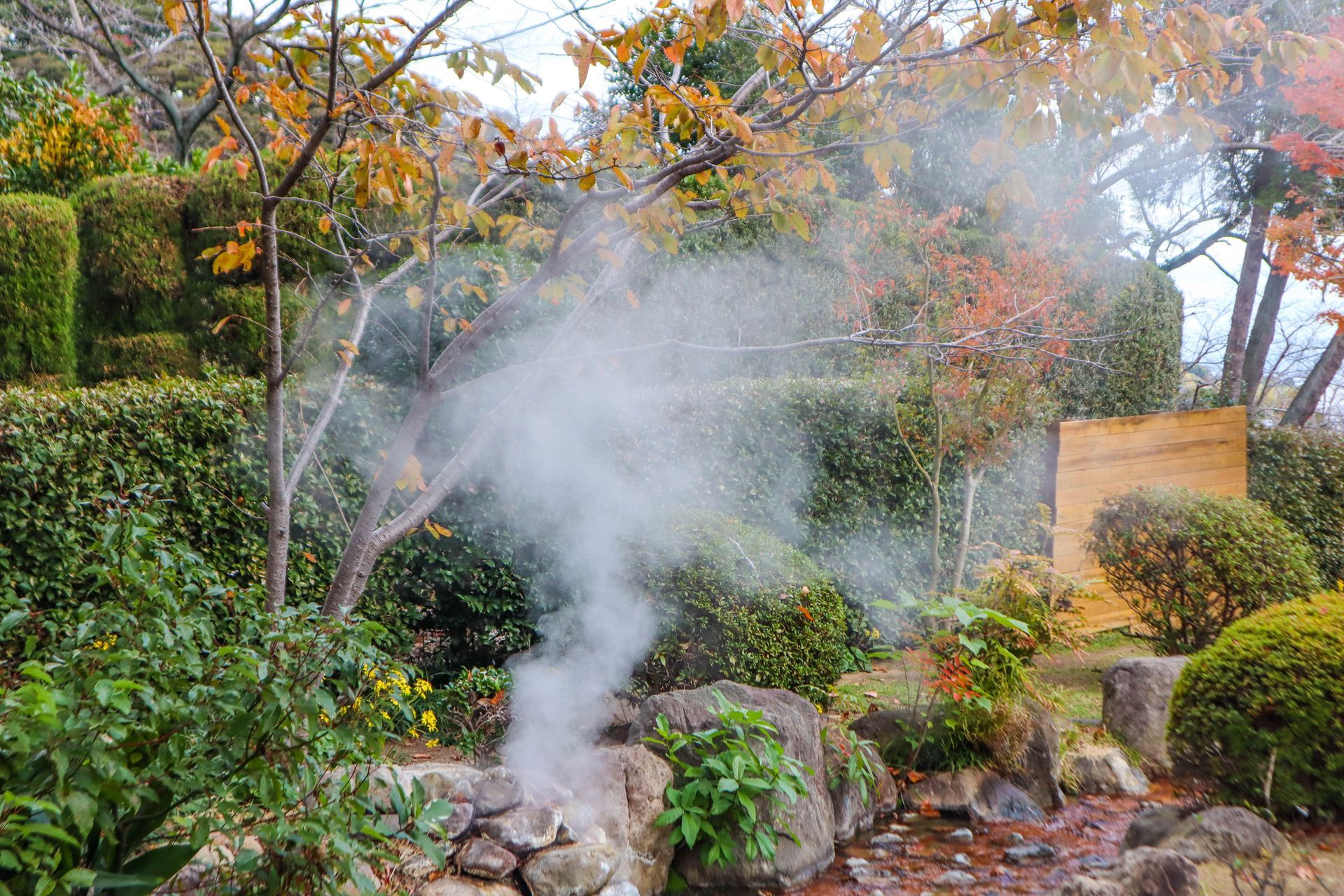
In 2002 bug slayer mosquito systems began business, as the first and only mosquito misting company in the Tampa Bay area. We were the first, we are the largest mosquito control company on the West Coast of Florida. We have over 50 authorized dealers throughout the country that purchase the equipment we manufacture right here in the Tampa Bay area. We manufacture, sell, installed and service over 1,000 mosquito misting systems. We have been and are totally focused on mosquito control applications for your home and business in the Tampa Bay area. When only the best will do, it's a bug slayer.
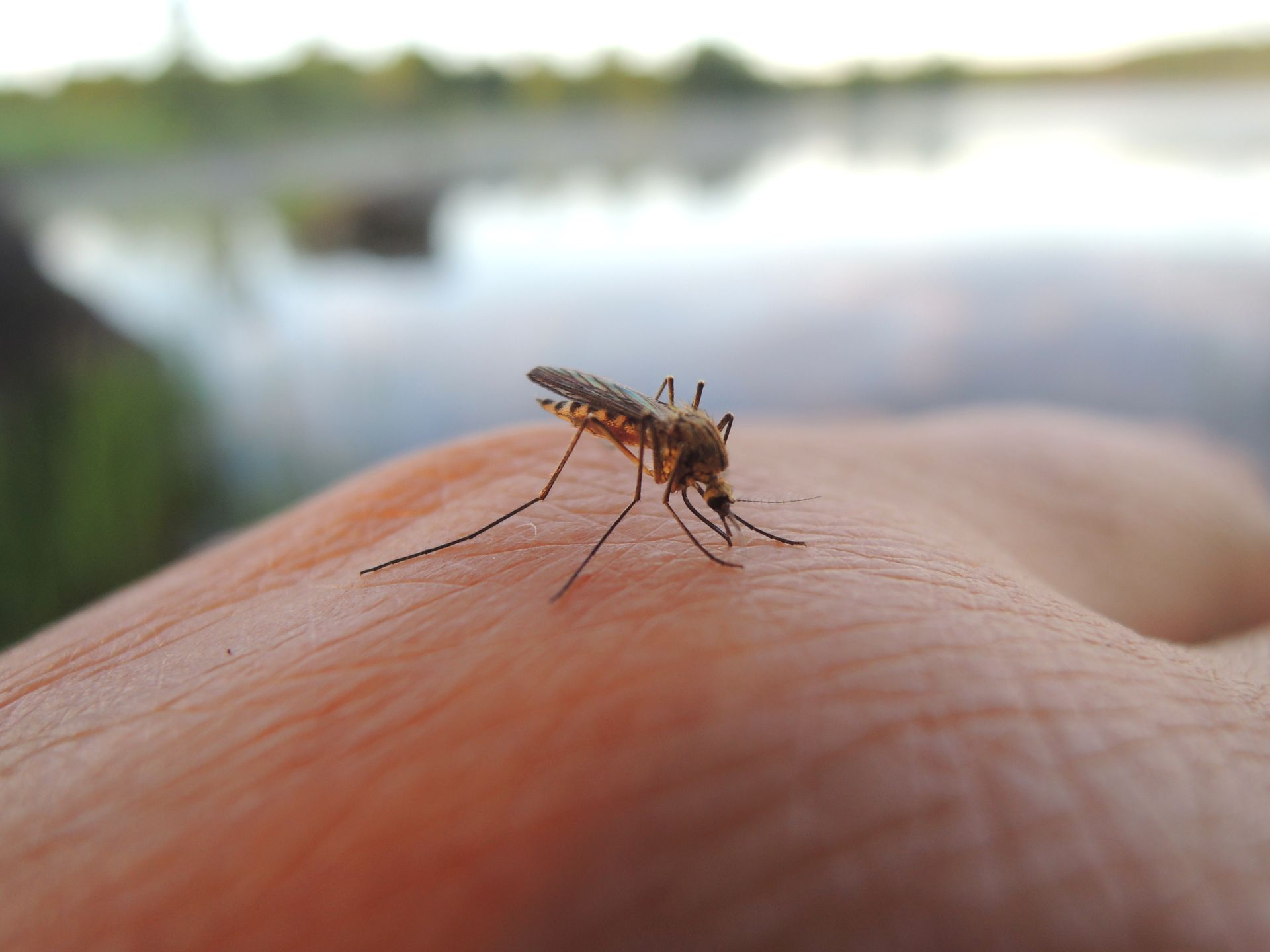
Aside from the potential of having a deadly virus transmitted to you by mosquito bite, there can be many side effects and allergic reactions to the bite itself. Many of the mosquito saliva proteins can cause allergic reactions, however most people display only swelling and itching at the bite area. Basic first aid measures usually suffice for the average mosquito bite. Usually some type of antiseptic white should be applied to the bite seen. If additional swelling occurs use ice were some type of lotion the contains a hydrocortisone cream to reduce the swelling and potentially stop itching. Caladril or calamine lotion are seem to work for me with a bad bite. Never scratch a bite location, easier said for adults than little kids, but it can increase the potential for infections. Common sense should be the rule of thumb for mosquito bites. There are extenuating circumstances where severe allergic reactions may take place, see medical advice in these situations.
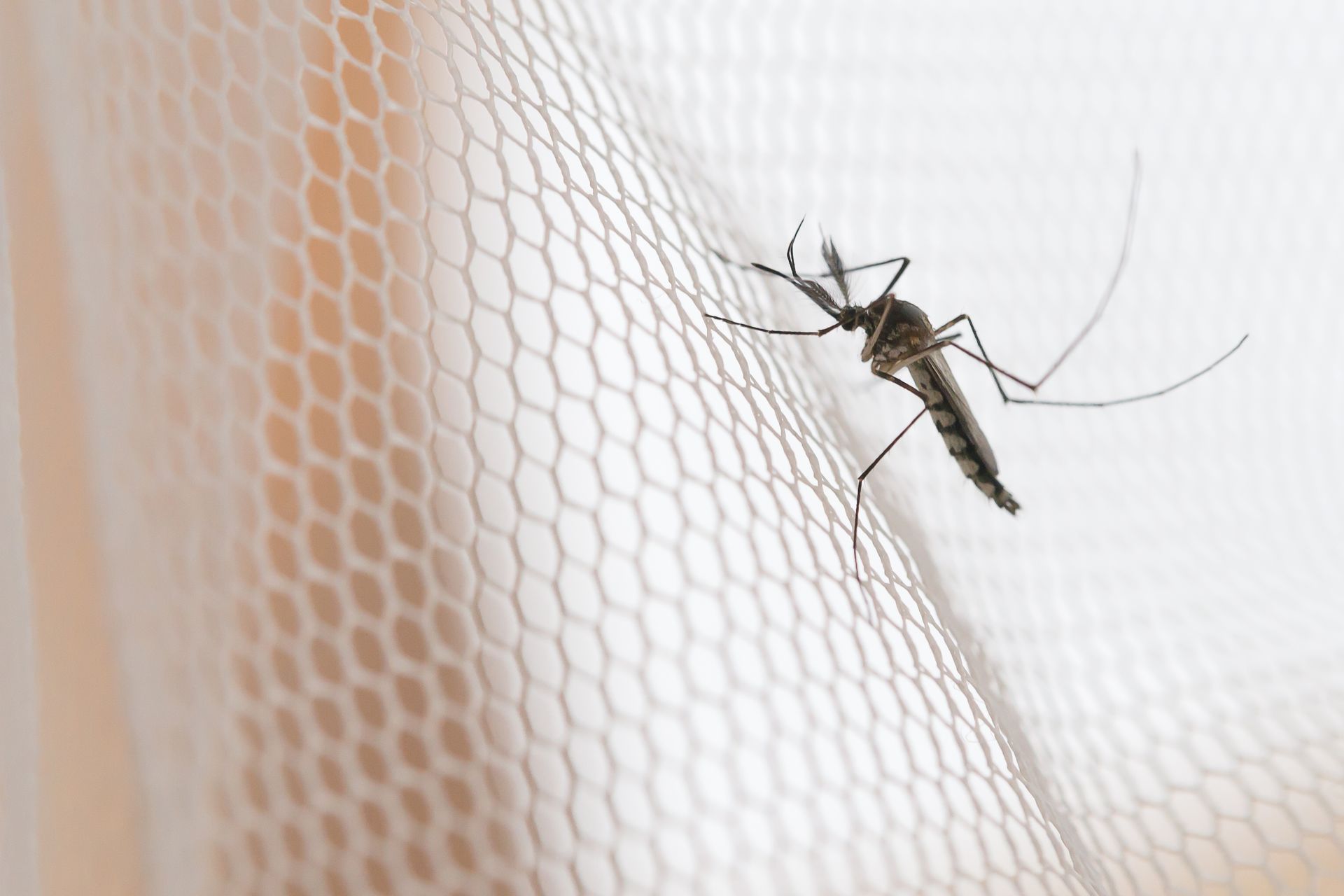
Over the past few years as the economy slowed down, so did the tax revenues for many of the counties in the Tampa Bay area. With the reduction in monies available, many of the mosquito control districts have had to curtail their efforts somewhat to more reactionary mosquito control treatments than continuous ongoing mosquito management efforts of the past. Individuals that are concerned about the health and well-being of their families and pets need to be proactive in their personal mosquito control efforts. Integrated pest management systems need to be implemented by individuals through private companies to control mosquitoes and other biting pests around your home. The bug slayer system would do nicely.
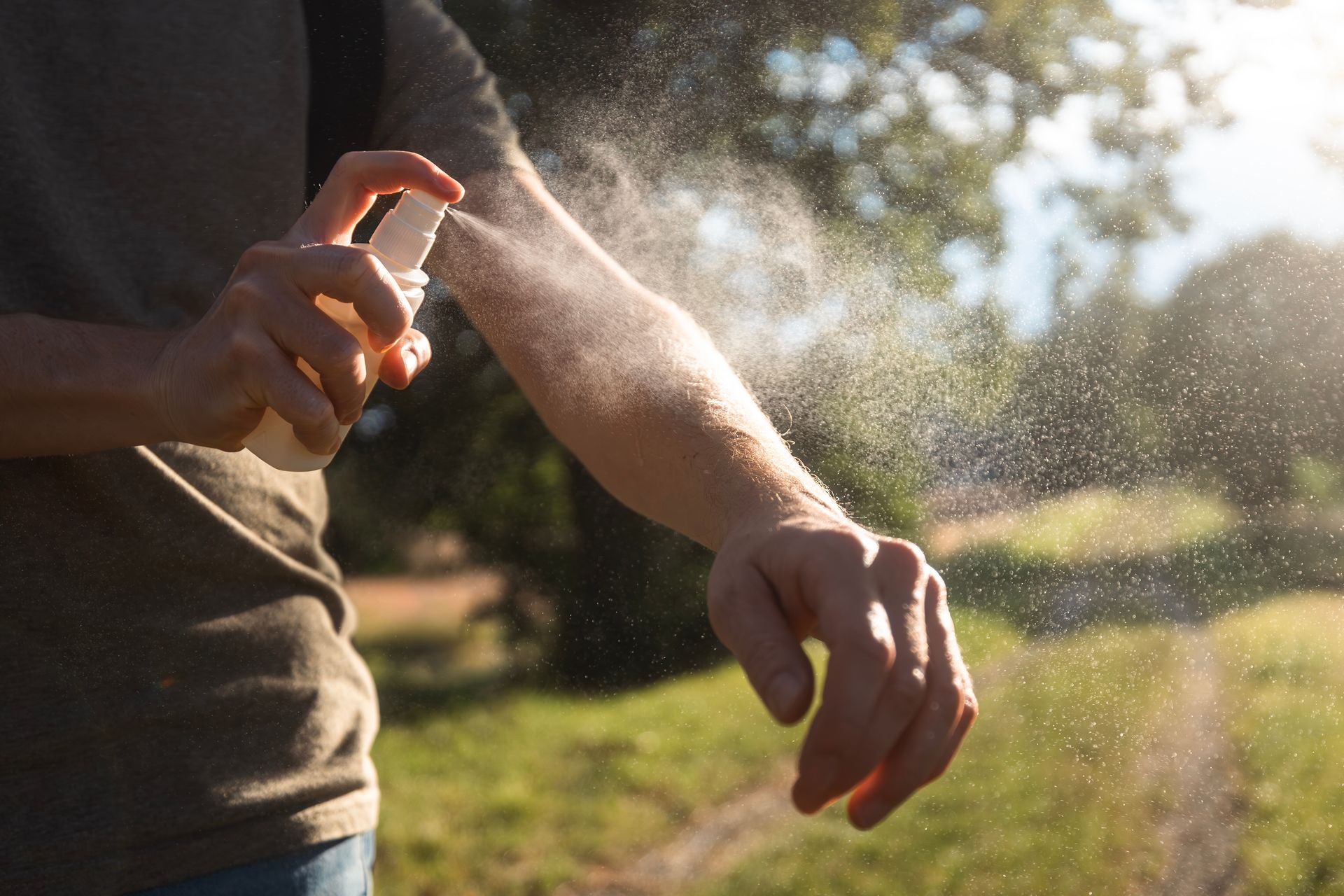
Every outdoorsman has a story about being stuck somewhere in being mauled by bloodsucking mosquitoes. They always claim needing a blood transfusion after the incident, but there's never been a record of a mosquito attack that's taken that much blood, even though a female mosquito can consume 10 times her body weight in one blood meal. The dangers of mosquito bites is the potential disease that the mosquito carries: malaria, dengue fever, West Nile virus, equine encephalitis, etc. in the list goes on. In the Tampa Bay area, you are susceptible to anyone of these mosquito borne diseases through the bite of one infected insect.
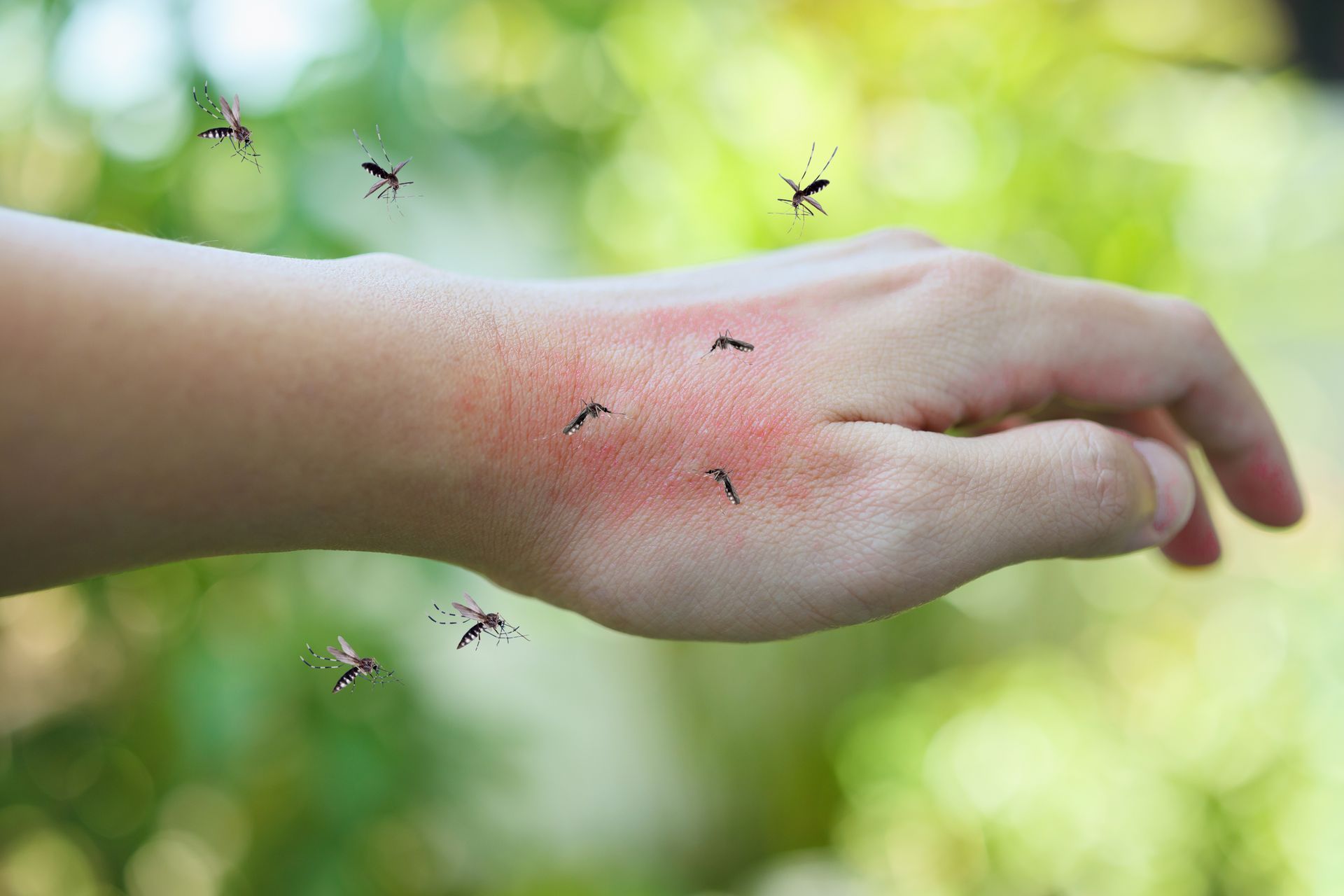
Your breath is a dead giveaway. Female mosquitoes have an acute sense of smell. Female mosquitoes are attracted to carbon dioxide, because they instinctively know that he warm-blooded host exhales this byproduct. A female mosquito can sense carbon dioxide from as far away as 50 to 75 feet. She will fly in a zigzag pattern, through the plume of carbon dioxide that you give off until she pinpoints her target for a blood meal. All warm-blooded creatures give off carbon dioxide when they breathe and all warm-blooded creatures are targeted by mosquitoes in the same way. The volume of carbon dioxide you give off is also be a factor in the targeting mechanism for the female mosquito.
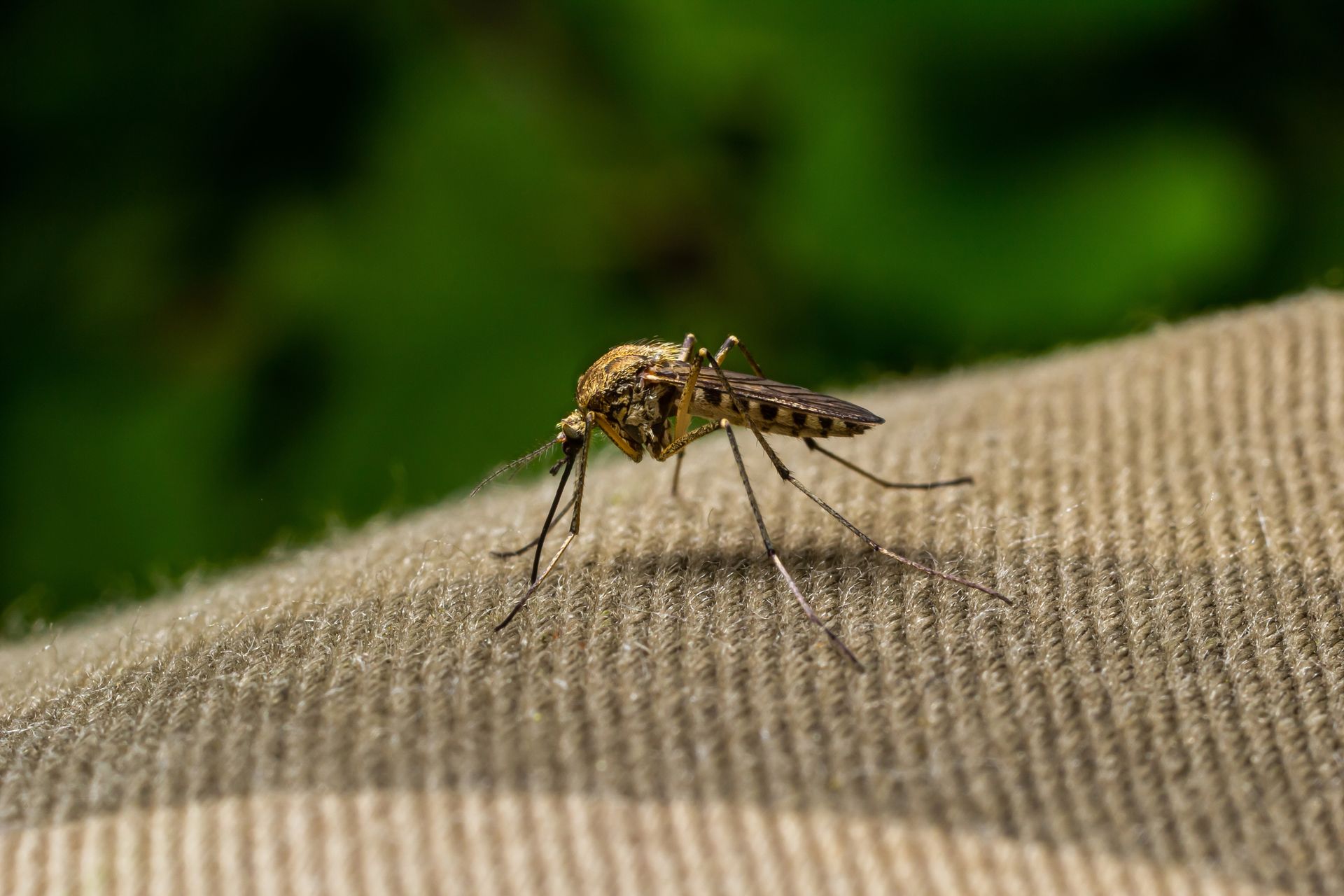
Mosquitoes are always hungry, and as long as they can fly, they will feed. Mosquitoes tend to be more active at certain times of the year based in the environment. Mosquitoes also tend to feed more often from dusk to dawn, evening hours. There are certain species of mosquitoes that are daytime feeders, you've probably seen those little black ankle bitters attack even in daylight hours. Many of the species carry disease also. Mosquitoes have a constant need to replenish their energy source on an ongoing basis, with the females also needing protein for a reproduction.
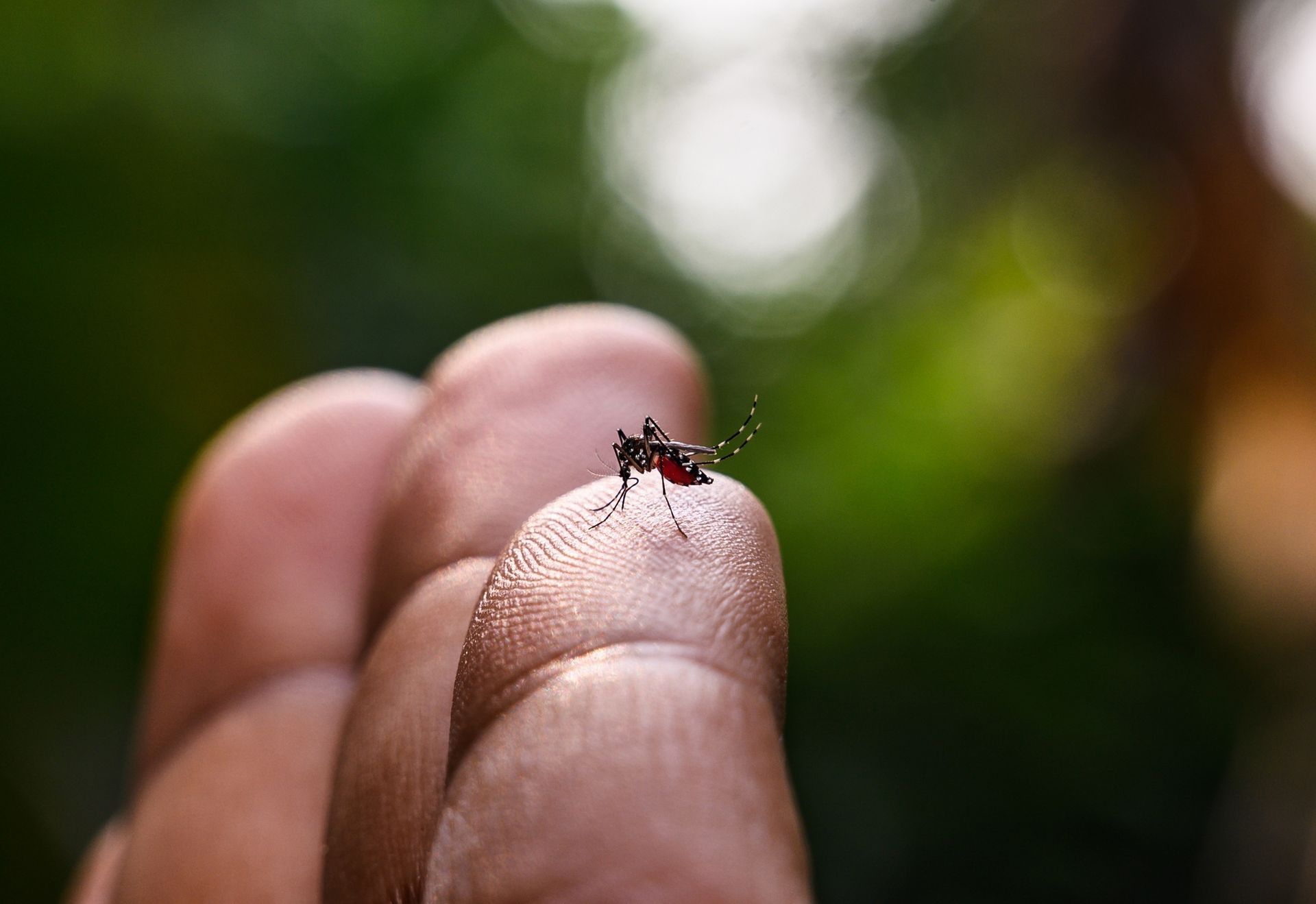
There's great truth way mosquito breeds has an impact on that environment. Most mosquitoes don't travel more than 100 yards from where they emerge as adults during the lifetime. If your yard is prone to holding stagnant water in any significant quantity your is greater risk for breeding generations of mosquitoes is living in the Everglades. Most homes in the Tampa Bay area provide great shade cover for mosquitoes to harbor due to the tropical landscape that we all enjoy. Because of frequent watering, many areas tend to hold small amounts of water perfect for the laying of eggs. Many man-made drainage areas, including gutters stagnant water that will allow multiple generations and mosquitoes to breeding mature. Without some type of protection, our yards can become a significant breeding ground for growing mosquito population.
